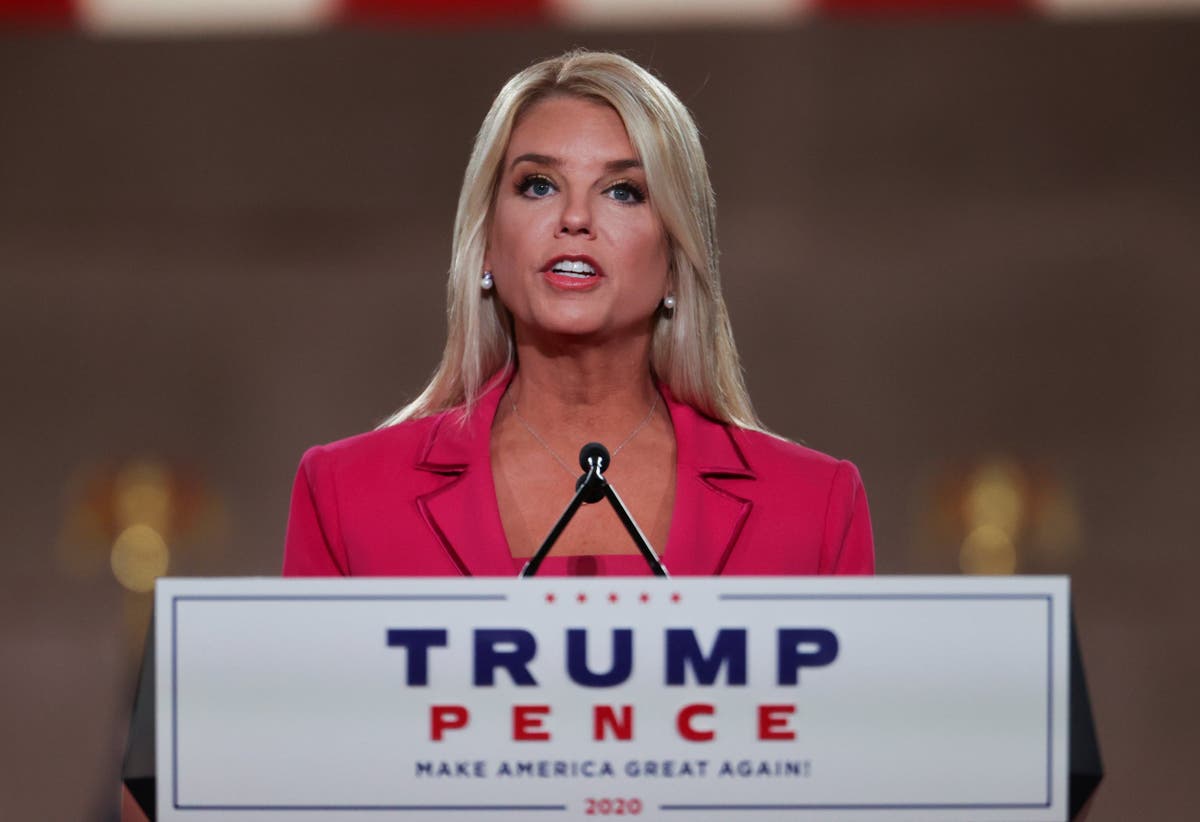
The American people have spoken, and the message in Donald Trump’s historic victory came through loud and clear: A majority of voters wanted change – sort of. That sounds contradictory, but here’s the logic: Americans are tired of paying higher prices and of feeling that the nation projects weakness, especially on the immigration issue. Those were the top issues for Trump supporters in the exit polls.
Voters’ way of effecting change was to boot the current administration – as represented by Vice President Kamala Harris – and bring back a familiar face: former President Trump. In America’s two-party system, those were the only viable choices on the ballot. The votes of the “hold your nose and vote Trump” cohort counted just as much as those of the enthusiastic, MAGA-hat-wearing supporters.
It is doubtless the most stunning political comeback in American history, given Mr. Trump’s two first-term impeachments, criminal convictions, and unorthodox “strongman” style that seems to break all the rules of normal political discourse. “2016 was not an aberration,” says Chris Borick, director of the Muhlenberg College Institute of Public Opinion in Allentown, Pennsylvania.
“Trump’s victory [in 2016, along] with what happened last night, makes a case that much of what he sells, from a political perspective, is what Americans want.” The American people have spoken, and the message in Tuesday’s historic victory by once-and-now-future President Donald Trump came through loud and clear: A majority of voters wanted change – sort of. That sounds contradictory, but here’s the logic: Americans are tired of paying higher prices and of feeling that the nation projects weakness, especially on the immigration issue.
Those were the top issues for Trump supporters in the exit polls. Voters’ way of effecting change was to boot the current administration – as represented by Vice President Kamala Harris – and bring back a familiar face: former President Trump. In America’s two-party system, those were the only viable choices on the ballot.
The votes of the “hold your nose and vote Trump” cohort counted just as much as those of the enthusiastic, MAGA-hat-wearing supporters. It is doubtless the most stunning political comeback in American history, given Mr. Trump’s two first-term impeachments, criminal convictions, and unorthodox “strongman” style that seems to break all the rules of normal political discourse.
Mr. Trump’s survival of two recent assassination attempts, to some supporters a sign that “ God was involved ,” only enhanced his mystique. Beyond a repudiation of the status quo, it’s clear plenty of Trump voters like what they see.
That includes both his brash style and policies aimed at addressing Americans’ deep frustration with everything from border security to the cost of living to the United States’ role in the world. “2016 was not an aberration,” says Chris Borick, director of the Muhlenberg College Institute of Public Opinion in Allentown, Pennsylvania. “Trump’s victory [in 2016, along] with what happened last night, makes a case that much of what he sells, from a political perspective, is what Americans want.
” But this election also reflects a larger anti-incumbent backlash seen in other Western democracies, from the United Kingdom and (likely soon) Canada, to New Zealand, Australia, and the deeply unpopular leaders of France and Germany. Before the U.S.
election, political observer Matthew Yglesias wondered out loud why “ all post-COVID electorates are grumpy and miserable.” Some analysts caution against reading too much into Mr. Trump’s victory, noting that Democrats faced strong structural headwinds.
Polls show that the percentage of Americans saying they were satisfied with the direction of the country was only in the mid-20s , a clear danger zone for an incumbent party. “It is difficult to interpret this result as a mandate,” says presidential historian George Edwards III, a professor emeritus at Texas A&M University. “The country remains divided.
” Still, Democrats face their share of blame for the loss, which saw a Republican presidential nominee win the popular vote for the first time in 20 years. At press time, Mr. Trump had 51% of the popular vote to Vice President Harris’ 47.
5%, though that margin could shrink as California counts its votes. “Democrats need to do some real soul searching, they were pretty massively repudiated in the election,” says veteran political analyst Charlie Cook in an email. At time of writing, Mr.
Trump had won 292 electoral votes, 22 more than needed to win. He appeared set to win even more in the states still counting ballots, including Arizona and Nevada, which would make for a sweep of all seven battleground states. Late Wednesday afternoon, Ms.
Harris delivered a concession speech on the campus of her alma mater, Howard University. “The light of America’s promise will always burn bright,” she said, after a congratulatory phone call to Mr. Trump.
Earlier in the day, the Trump campaign released a statement saying, “President Trump acknowledged Vice President Harris on her strength, professionalism, and tenacity throughout the campaign.” Mr. Cook praises Ms.
Harris’ performance as a candidate – “better than many expected, and her campaign was very competent” – but notes it wasn’t enough. And he blames the Biden administration for overreaching in its agenda after winning the 2020 election only narrowly. The Trump victory “was a massive repudiation of the Biden-Harris four years in general and [specifically] their economic and border policies,” Mr.
Cook says. During the Biden presidency, inflation averaged 5.2% year-over-year, versus 1.
9% under Mr. Trump. On the southern border, President Joe Biden saw illegal crossings soar during his first three years in office, far higher than in the decade before he took office.
“You cannot overstimulate the economy, creating inflation levels that had been pretty dormant for over 30 years, and not have a massive backlash,” Mr. Cook adds. “You cannot ignore the border for three years, only settling down to address it in your last year, and not face massive backlash.
” This analysis suggests that a different Democratic nominee might not have fared much better this cycle. Still, the what ifs of the Democratic effort are flying thick and fast. First up for recriminations may be President Biden.
What if the octogenarian had stuck to his original suggestion that he’d be a “bridge” president – i.e., a one-termer – and announced he wouldn’t run for a second term early last year, allowing for a proper primary competition among the next generation of Democratic leaders? Instead, his initial decision to run for a second term, only to be pushed out of the race by fellow Democrats less than four months before Election Day, left the party scrambling.
Ms. Harris, the nominee by default, had little time to introduce herself to voters and establish an identity apart from the Biden brand. Ms.
Harris’ decision to make Minnesota Gov. Tim Walz her running mate rather than popular Gov. Josh Shapiro of Pennsylvania – the nation’s biggest battleground state – also raises questions.
It appears a Harris-Shapiro ticket likely also would not have prevailed, but we’ll never know what his rhetorical skills and centrist, bridge-building persona could have brought to the effort to win over swing voters. To die-hard Trump opponents, the test now is to practice what they preached: Accept the election result, and prepare to counter what some see as the potentially existential threat Mr. Trump poses to American democracy.
Exit polls show that defending democracy was the No. 1 issue for Harris voters. “Citizens across this country, our courts, members of the press, and those serving in our federal, state, and local governments must now be the guardrails of democracy,” former Wyoming Rep.
Liz Cheney, an anti-Trump Republican and a former party leader, said in a statement Wednesday. The Republican takeover of the Senate, with three seats gained so far, suggests that this chamber may not be the check on Mr. Trump some opponents are hoping for.
The GOP-controlled Senate will also ease confirmations of Trump Cabinet and judicial nominees. At press time, control of the House remained up for grabs. But the real story of the 2024 election is with the voters themselves, and why they voted the way they did.
Mr. Trump made gains with nearly every demographic group. But the most noteworthy shift was among Hispanic voters – particularly men.
In 2020, Mr. Biden won Hispanic men by 23 percentage points; this year, Mr. Trump won that demographic by 10 points.
Overall, 40% of Hispanic voters cited the economy as their most important issue, 9 points higher than the population as a whole. In Los Angeles, Isabel Velez, who owns a real estate business with her husband, cast a ballot for Mr. Trump – while keeping her support for him quiet among her friends, who don’t all agree.
She points to interest rates, violence, and abortion as her top reasons. First-time voter Devon Che also voted for Mr. Trump.
The 21-year-old artist was unhappy that the U.S. under President Biden seemed to be funding war in Ukraine and Gaza.
He also recalls easier economic times when Mr. Trump was in office: “It was very easy to just live life and buy day-to-day things and not worry about saving as much.” At the polls in Hobart, Wisconsin, on Tuesday morning, Dan Skenandore said he was still pondering his options when he left his home in nearby Oneida to go vote.
He supported Mr. Trump in 2016 but switched to vote for Mr. Biden in 2020.
“It was a difficult time, with the pandemic, all the confusion,” says Mr. Skenandore, a police officer and member of the Oneida Nation, of 2020. “It seemed like there was a need for strong leadership.
” But Mr. Biden disappointed him. Mr.
Skenandore’s own economic situation became more difficult. “I pay more in taxes,” he says. “My money is worth less.
” Mr. Skenandore likes Mr. Trump’s idea of ending taxes on overtime pay, even though he calls it unrealistic.
He also has positive words for Ms. Harris, citing her “message of hope.” And he paid close attention to the TV ads during the Packers-Lions NFL game Sunday.
In the end, he says, he voted for Mr. Trump. Staff writer Ali Martin contributed to this report from Los Angeles, and contributor Richard Mertens from Hobart, Wisconsin.
.














